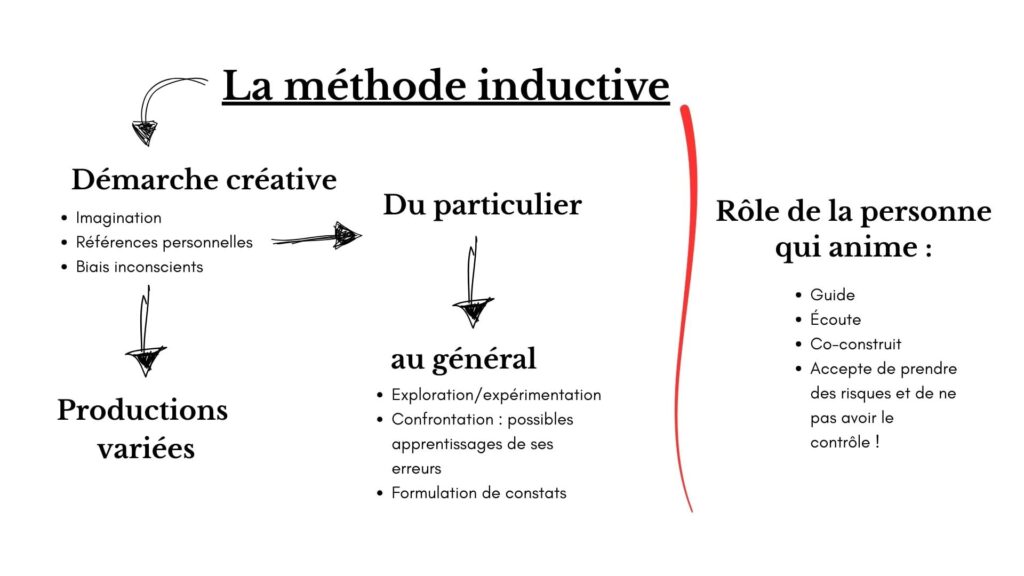Whether planning a public engagement program, implementing it, producing materials, or facilitating activities, one fact remains: we hold a certain power in relation to the participating public. We choose the themes, examples, approaches, and even how the audience should behave. Questioning this power becomes essential when aiming to deliver truly emancipatory education.
Questions to Ask Ourselves
Participatory approaches allow the public to be an integral part of the entire process — if we make a genuine effort and accept the risk of sharing power. So, let’s ask ourselves the following questions: Have we invited members of the public to participate in developing the objectives and choosing the themes? Have we listened to what those directly affected have said and written about the topic? Are we valuing their voices in the materials we produce? Do the planned activities allow participants to express their agency, or do they mostly keep them in the passive role they’re so used to being placed in?
The Inductive Method
When it comes to choosing truly participatory activities (and, be careful, not just interactive ones), the inductive method deserves our full attention. Even if it’s counterintuitive — the reverse method, called deductive, still reigns: we usually present definitions and analyses, then invite the public to apply this “new” knowledge to situations (if the public is lucky) or, more often, to ask questions… toward the end. The inductive method is centered on active participation: information is shared with participants, who are then encouraged to explore, structure, define, and analyze it themselves… In short, we offer them the possibility to contribute, organize, co-construct knowledge, and propose solutions. In doing so, we recognize that participants exercise their citizenship alongside us; we value their agency — a more than coherent choice in global citizenship education.

Coherence and Decoloniality
Speaking of coherence, if our activities are truly grounded in a decolonial perspective, then active participation from those directly concerned becomes even more essential. We cannot decolonize minds and practices while adopting a stance—consciously or unconsciously—that assumes we hold the knowledge. Valuing the knowledge of those directly affected, creating space for public reflection early on—and not just at the end—and organizing opportunities for sharing and co-construction are meaningful ways to build more just and inclusive communities.
Example of an Activity
Let’s take the example of an activity designed to spark reflection on how mainstream industrial entertainment shapes our relationship with the world. We could, of course, prepare a set of film excerpts, present them, highlight problematic elements (racist, sexist, imperialist, etc.), and plan a Q&A session. However, it is entirely possible to plan a truly participatory and inductive process (tested and approved with Quebec teenagers in 2018!). Start by asking everyone to identify the main components of the last film they watched. Then draw a picture of the elements that emerge from the notes taken: Do most films feature a lone, white male hero, or do they reflect humanity’s diversity, with a range of empowered characters? What power dynamics exist between them? What is the main threat? What means are promoted to achieve which kinds of goals? This portrait offers participants an opportunity to reflect on the dominant worldviews shaped, among other things, by Hollywood. We can then present a clip from a popular film and analyze it; spark a discussion on ways to diversify our sources of entertainment; and, as a group, suggest works that offer alternative worldviews — ones that challenge stereotypes and even decolonize our imaginations…
Another world is possible, starting with how we conduct global citizenship education activities.
***Image source. Translation: The Inductive Method. Creative Approach: imagination; personal references; unconscious bias. Varied Productions. Specific. General: exploration and experimentation; confrontation: possibility to learn from one's mistakes; formulation of observations. Role of the facilitator: Guide; listen; co-construct; agree to take risks and to not be in control.
![]()
 Marie Brodeur Gélinas is an educational designer. A teacher by training, she applied her expertise in education around the world over a 20-year career in the international solidarity sector (CLUB 2/3, Oxfam-Québec and the Association québécoise des organismes de coopération internationale) through school workshops, engaging resources and mobilization campaigns aimed at the general public. Her recent work as a consultant has led to collaborations with the National Film Board of Canada (NFB) and the Canadian Partnership for Women and Children’s Health (CaWaCH), among others, in which she develops emancipatory educational materials and leads workshops that encourage participants’ agency. She is especially interested in participatory and decolonial approaches—two concepts that pair well together.
Marie Brodeur Gélinas is an educational designer. A teacher by training, she applied her expertise in education around the world over a 20-year career in the international solidarity sector (CLUB 2/3, Oxfam-Québec and the Association québécoise des organismes de coopération internationale) through school workshops, engaging resources and mobilization campaigns aimed at the general public. Her recent work as a consultant has led to collaborations with the National Film Board of Canada (NFB) and the Canadian Partnership for Women and Children’s Health (CaWaCH), among others, in which she develops emancipatory educational materials and leads workshops that encourage participants’ agency. She is especially interested in participatory and decolonial approaches—two concepts that pair well together.
